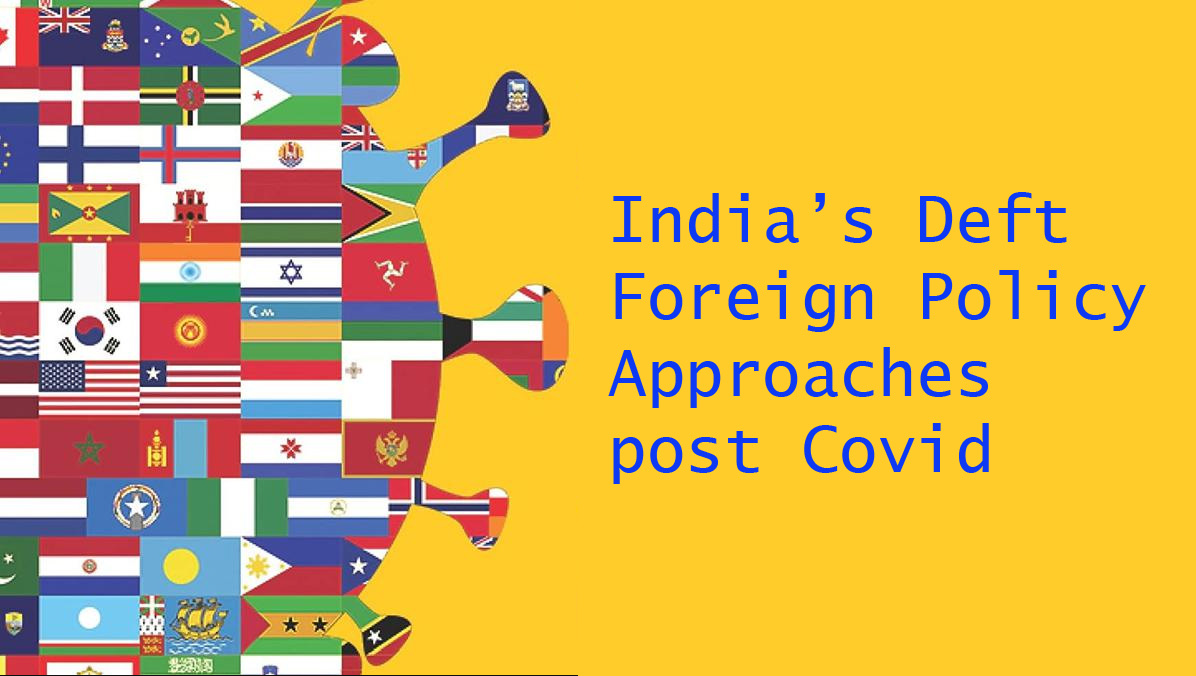As the world emerged from the Covid Pandemic induced chaos and the resulting geopolitical shifts the new paradigm called for deft foreign policy responses and India nimbly addressed the new emerging realities as it re-calibrated its foreign policy approaches, while balancing conflicting external pressures. India continued to engage with existing partners and at the same time became a part of new alliances with a focus on convergence of interests as the underlying leitmotif. Some of the main challenges that the world faced post Covid were the disruption of global value and supply chains, economic stress, trust deficit in the existing global systems and China’s assertiveness. In this complex multi-layered and multi-dimensional environment, India’s foreign policy focus was to secure India’s interests and position India in a leadership role especially during its G-20 Presidency during 2023. At the G-20 Summit in September 2023, India was able to contribute constructively through a dynamic and fluid strategy to ensure a successful outcome, including the admission of the African Union as a member. India took on the mantle of being the Voice of the Global South and ensured the views and concerns were included in the deliberations of the G-20, placing the Global South at the center of global governance.
The Ukraine-Russia war since February 2022 and the Hamas- Israel war since October 2023 have further vitiated the geo- economic equilibrium affecting crucial energy and food supplies and global economic growth. India crafted its foreign policy response with due deliberation keeping strategic autonomy at the core with a multi-optional approach, without succumbing to external pressures to make India take sides and issue condemnations. In this context, India made clear that this was not an era of war and that Diplomacy and dialogue are the way forward. India continued to buy cheaper Russian oil despite intense and coordinated lobbying from the United States (US) and some European countries; India’s External Affairs Minister, Dr Jaishankar’s response made clear the double speak of the European countries who themselves continued to buy Russian gas despite the sanctions.
Following the disruption in supply chains of key components needed for green energy transition, molecules for pharmaceuticals, chips, semiconductors etc, India projected itself as an alternative or even a plus one to China’s monopoly in these sectors, even as it forged the Initiative on Critical and Emerging Technologies or iCET collaboration with the US in key and emerging technologies for joint innovation, research and manufacture. India’s abstentions in various UN sponsored resolutions reflected the increasing ineffectiveness of the United Nations (UN) in ending the Russia-Ukraine war or the Hamas-Israel war. India urged dialogue and at the same time has been advocating urgent reforms of the UN and the UN Security Council to reflect contemporary global realities.
China’s actions have made it a cause for concern globally and particularly for India, one of the major challenges has been China’s attempts to lay claim to Indian territory and redefine its borders and to adversely influence countries in India’s neighbourhood, vis-a-vis India, especially through its debt diplomacy and Belt and Road Initiative (BRI) projects, enabling it to entrench itself in India’s neighbourhood and acquire strategic assets there. In response India strengthened its collaboration with the US bilaterally and in the QUAD (Quadrilateral Security Dialogue) along with Australia and Japan to counter China’s intentions to control the Sea Lanes of Communication in the Indo-Pacific and project itself as the sole power in Asia and eventually in the world by replacing the US.
India’s foreign policy responses over the last few years have been underpinned by strategic autonomy and commitment to multilateralism and regional stability while advocating peaceful coexistence and the ethos of Vasudhaiv Kutumbakam or the world is one family, during its presidency of the G-20 in 2023. With view to safeguarding and promoting its interests, India has strengthened and/or forged new partnerships with the US, UK and with countries in Europe, the Middle East, the Indian Ocean, ASEAN, Africa, Latin America and in the neighbourhood; it has reset its ties with Russia and China. Overall, India has navigated the global turbulence effectively by its well considered and deft policy responses. Amidst the ongoing global churn, India needs to continue to be nimble and flexible in its foreign policy choices and in making new alliances while strengthening existing ones.
Author: Ambassador Manju Seth (IFS) is a Distinguished Fellow (Honorary) at Forum for Global Studies, New Delhi. She worked as an Ambassador and Consul General of India to Madagascar and Comoros.
Disclaimer – The views and opinions expressed in the commentaries are those of the authors and do not necessarily reflect the official policy or position of Forum for Global Studies.

